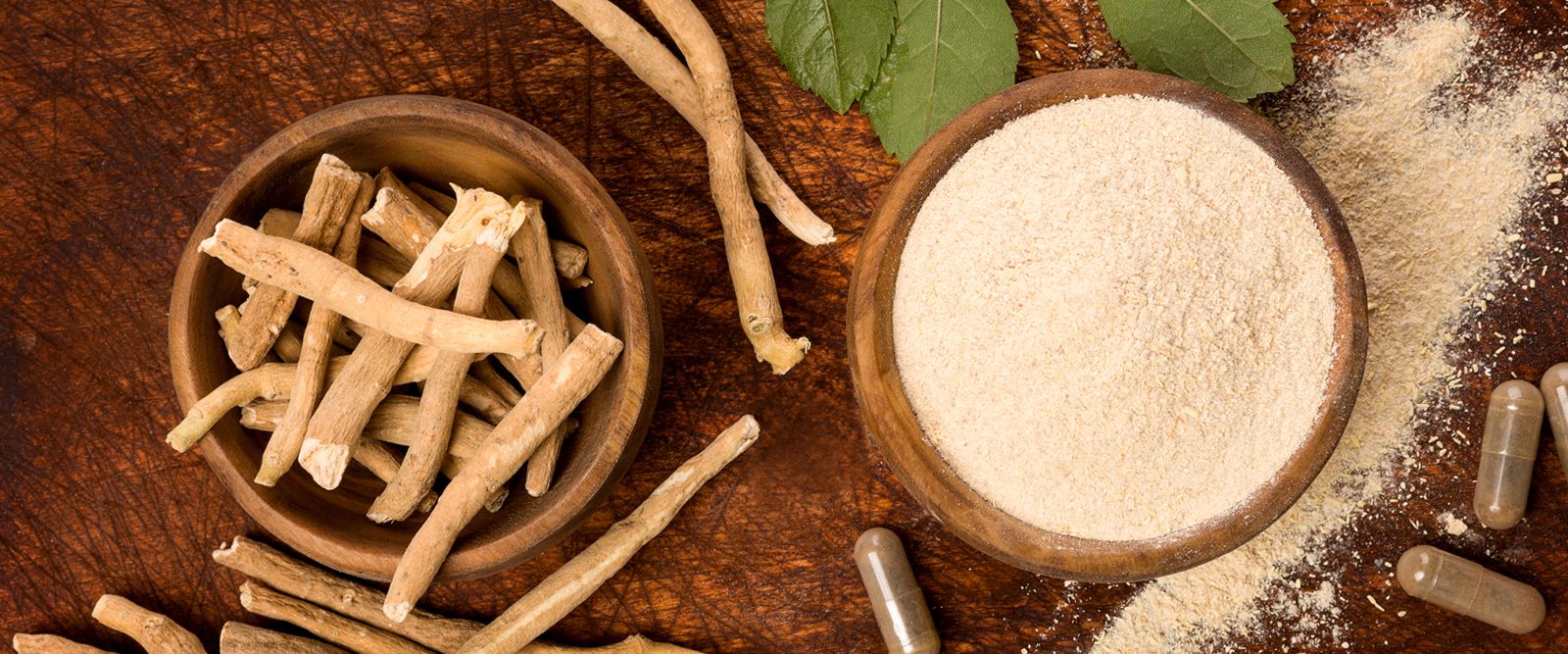What Are the Benefits of Ashwagandha?
An expert explains what you need to know about ashwagandha, a popular herb typically used in Ayurvedic medicine to reduce stress, fatigue, and anxiety.

Stress relief, insomnia treatment, anxiety reduction — you may have heard of the herb ashwagandha and its potential health benefits, but what exactly is it, and what can it do for your body?
Popular in Ayurvedic medicine, a traditional system of medicine from India that provides a holistic approach to health, ashwagandha root is growing in popularity in vitamin aisles.
“Integrative medicine expands our toolbox beyond Western medicine to include evidence-based treatments from Eastern and alternative medicine. Ashwagandha is a well-studied plant that is primarily classified as an adaptogen, a subset of herbs that improve the body’s ability to cope with stress,” says Dr. Zachary Mulvihill, a physician at Integrative Health and Wellbeing at NewYork-Presbyterian, in collaboration with Weill Cornell Medicine. “While ashwagandha can be a potent treatment for many patients, like any herb or supplement, it is most effective when combined with diet and lifestyle changes that are focused on addressing the root cause of your symptoms.”

Dr. Zachary Mulvihill
Dr. Mulvihill shared more with Health Matters on what to know about ashwagandha.
What is ashwagandha?
Dr. Mulvihill: Ashwagandha is a plant native to Asia and Africa. It’s also commonly known as Indian ginseng.
The leaves, berries, and roots have different active ingredients. The root is what is traditionally used for medicine, ground up in a powder that can be consumed.
What does ashwagandha do to the body?
Ashwagandha has many medicinal uses, but it’s most helpful in treating fatigue and burnout. Many patients fit the pattern of being both “tired and wired.” They feel exhausted throughout their stressful day, but then feel too stressed out at night to sleep deeply, so they wake up tired the next day.
Ashwagandha is one of the best herbs for breaking this cycle due to its unique ability to both reduce stress and enhance sleep. The simplest way to think of ashwagandha is that it helps to rest and restore your nervous system, helping you to “reboot” your body and mind.
Especially for busy New Yorkers, chronic stress can seem like a fact of life. Unfortunately, when our nervous system suffers from chronic stress, the “fight-or-flight” response gets activated, leading our body to release “stress hormones” like adrenaline and cortisol.
When cortisol levels rise, it can trigger inflammation and contribute to insomnia, both of which tend to worsen fatigue. While we need more studies to confirm this, it seems that ashwagandha helps to reduce cortisol levels. When cortisol levels go down, naturally more melatonin is produced in the evening. Thus, ashwagandha seems to help with insomnia by restoring our natural circadian rhythm, which is driven by the balance between cortisol and melatonin levels in our body.
What are the benefits of ashwagandha?
Research supports that ashwagandha can help:
- Improve sleep
- Reduce stress, anxiety, and fatigue
- Enhance cognition and focus
Who should take it?
I usually recommend ashwagandha to patients who are “tired and wired.” They may be struggling to cope with physical and mental stress, leading to anxiety and poor sleep, which over time can lead to a feeling of burnout and chronic fatigue.
Every person is different, so it’s best to get guidance from a physician or clinician familiar with supplements and herbs.
Ashwagandha is a well-studied plant that is primarily classified as an adaptogen, a subset of herbs that improve the body’s ability to cope with stress.
Dr. Zachary Mulvihill
How much ashwagandha should you take and when?
Supplements are not regulated the same way as medications, so a risk you can encounter is taking something that might be contaminated with different ingredients. I generally advise patients to take herbs that are produced domestically, and that are certified USDA organic. Just like any medication, you want to do your research, talk to your doctor, and see if you are on anything that could potentially interact with it.
The general dosing for ashwagandha is 300 mg, once or twice a day. Don’t go beyond 1,000 mg of an extract without talking to your doctor. You can mix the powder in water, cow milk, or nut milk, or take it in a capsule form. One way I suggest to patients is to mix it into a “golden milk,” which consists of a milk of your choice, turmeric, and spices like cinnamon and ginger.
Generally, ashwagandha is taken before bedtime to help with sleep, but you can take it in the morning if you find it more activating. Some people respond quickly to ashwagandha, while others take more time. Usually, patients notice subtle effects within one month.
Herbs shouldn’t be taken indefinitely. I recommend trying it for a couple of months, then reassessing how you are feeling over time. It’s also about addressing the root cause. Maybe you come in for fatigue and we start ashwagandha, but I’ll also recommend decreasing coffee intake and going to the gym three times a week. If you’re on it for more than three months, ask yourself, why? Did you get the result you were looking for? What’s making you tired or stressed? How’s your diet?
Who should not take it?
People who are pregnant or breastfeeding should avoid ashwagandha, along with people who have autoimmune or thyroid conditions or are on blood pressure medication.
And as with other supplements, people who have cancer should not take herbs or supplements without talking to their doctor, as it could interact with other medicines or treatments.
Are there any side effects of ashwagandha?
Common side effects include nausea or upset stomach, especially at higher doses.
Ashwagandha can also increase testosterone. Some patients taking large doses of ashwagandha have reported excessive sex drive and feelings of excessive alertness or energy.
The other main precaution that applies to supplements in general is that it’s a good idea to get a baseline set of labs that include your liver and kidney function levels. Although it’s rare, ashwagandha does seem to mildly raise liver enzymes levels in some patients. That’s why it’s important to talk to your doctor about the supplements you are taking, and to get your bloodwork checked over time.
If you’re noticing side effects, go down on your dose or consult a healthcare professional.
Additional Resources
Learn more about NewYork-Presbyterian’s integrative health and wellness services.
Last medically reviewed in June 2025.
